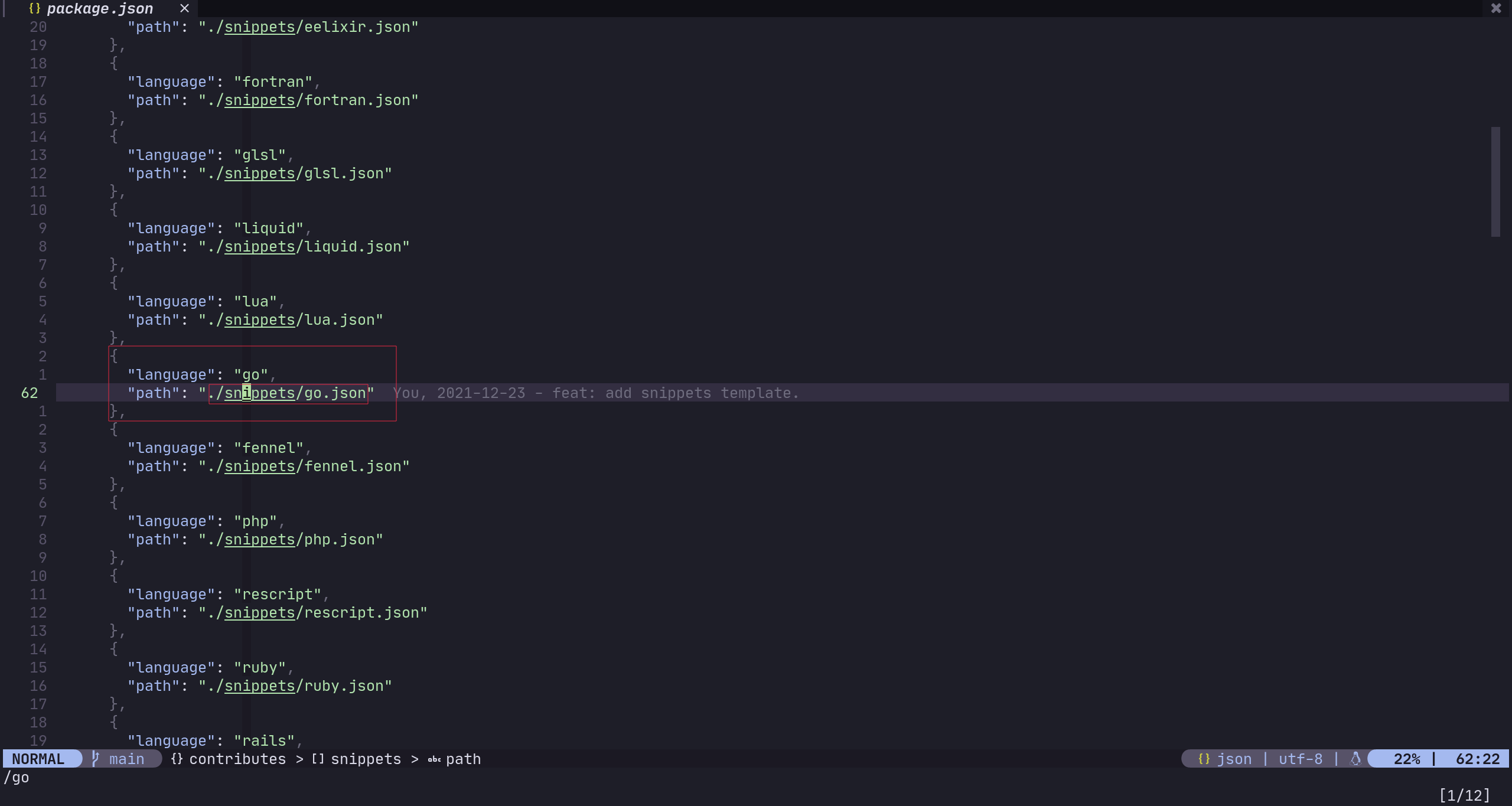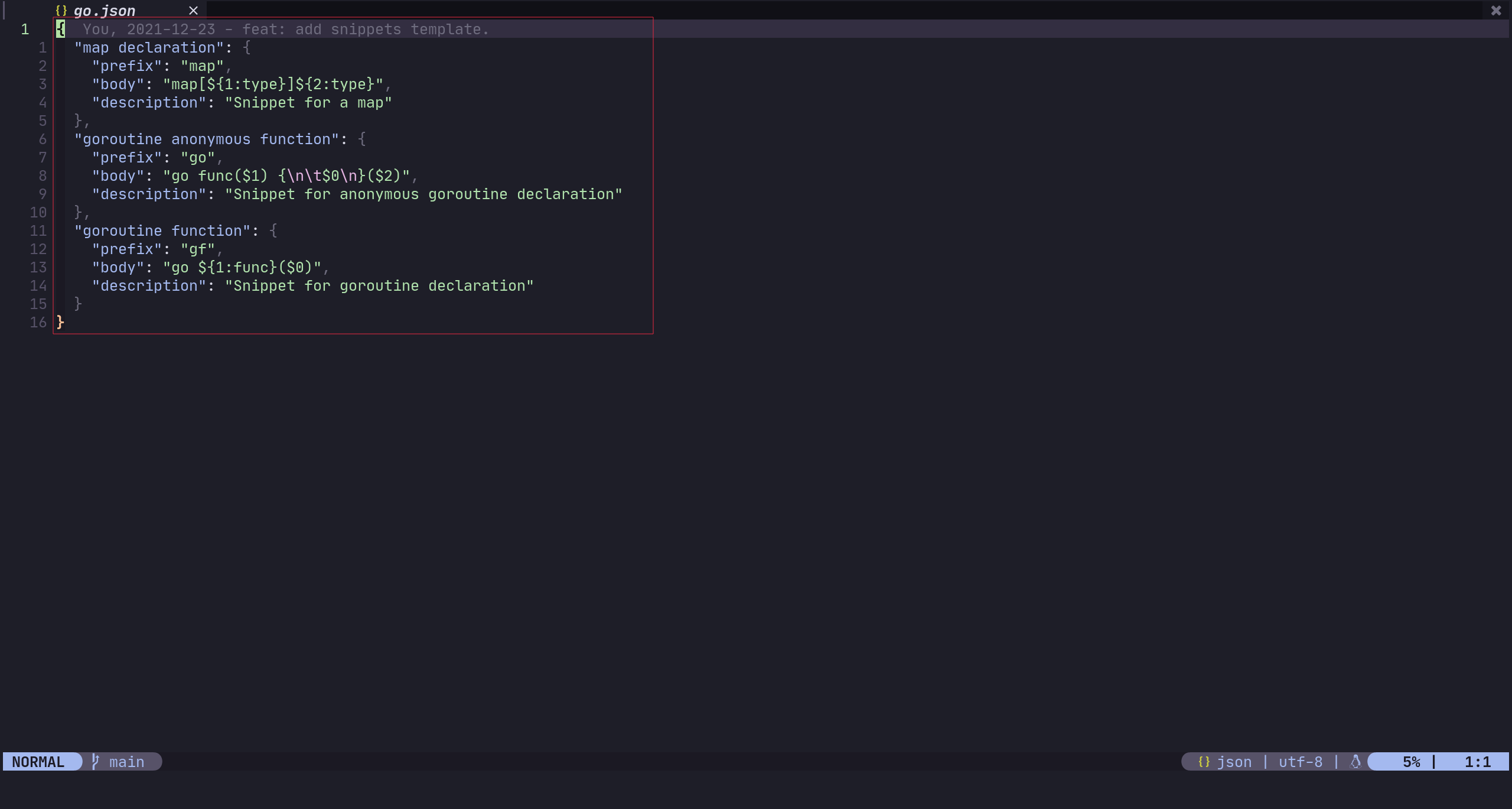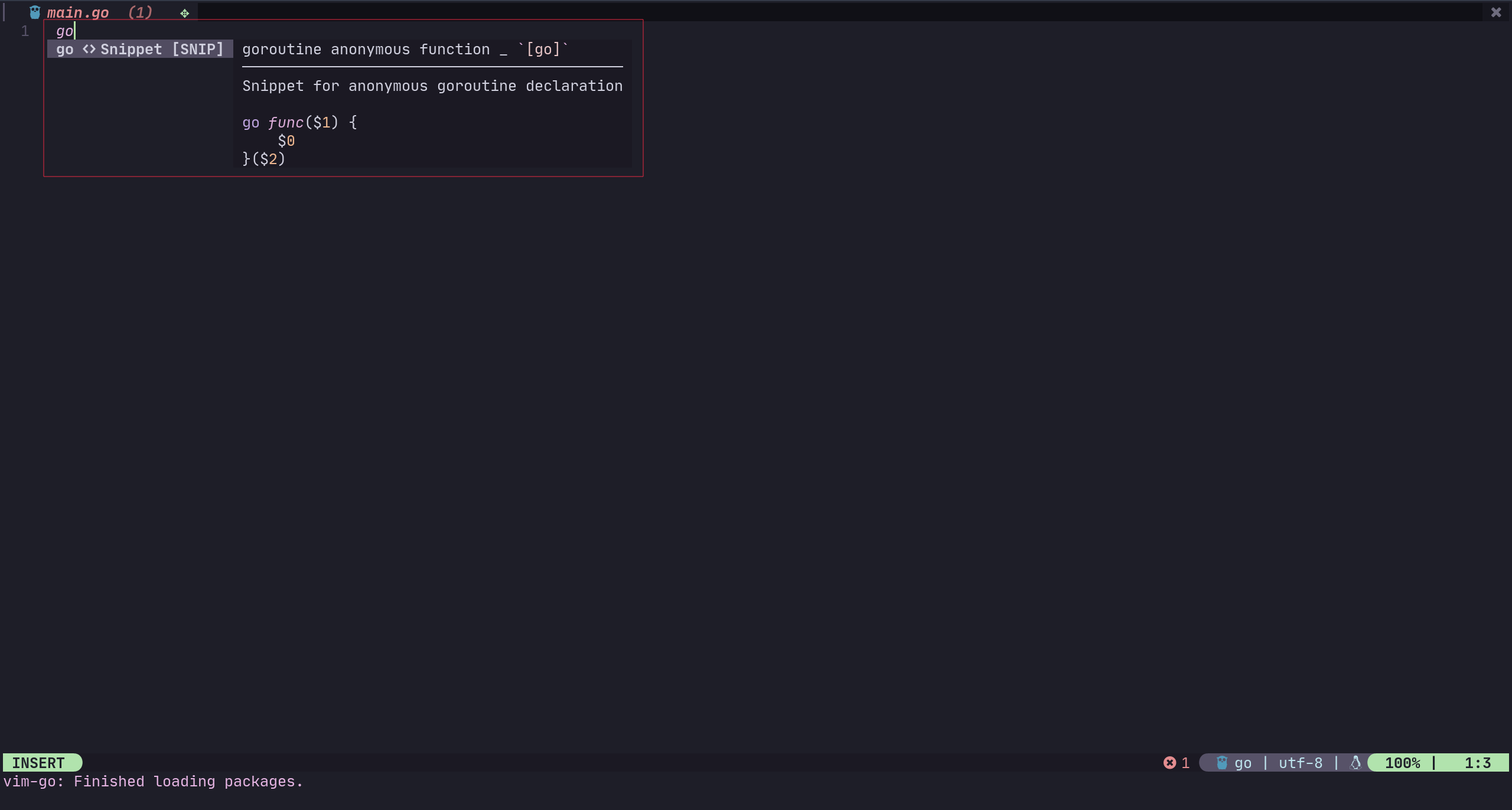-
Notifications
You must be signed in to change notification settings - Fork 462
Issues
Tip
This page is not frequently updated, so if you can't find anything useful here, please also check the open and closed issues.
rm -rf ~/.local/share/nvim/site/lazy/*
Caution
The aforementioned command is exclusively for Unix-like systems. If you are using a different operating system, the most reliable method to determine the path of installed plugins is by typing
:echo stdpath("data")."/site/lazy/*"in Neovim.
Check out this comment.
lazy.nvim will reset the rtp for better performance. In this case, nvim-qt's rtp got reset, so it's not shown in the command candidate.
Add vim.api.nvim_command("set runtimepath+=" .. global.home .. "/path/to/nvim-qt/runtime") after require("core.pack") in core/init.lua to add nvim-qt's rtp back.
Please refer to the FAQ and ensure that win32yank.exe is added to your $PATH. We avoid using clip.exe for copying because it does not handle UTF-8 strings correctly. For more details, please see this issue.
Please review this file to ensure that your directory can be detected as a valid working directory. For example (gopls):
Your root directory need a
go.modand your.gofile need to be created first. Then LSP will autostart when you edit.gofile next time.
How to setup GitHub Copilot
First ensure that your GitHub account is registered for Copilot. Then use the :Copilot auth command to complete the setup.
Warning
If your GitHub account does not have an active Copilot subscription, you may encounter unexpected issues if, for some reason, you have completed the authentication process.
Tip
The base configuration includes a verbatim copy of package.json from friendly-snippets in the snips directory. For more advanced usage, please refer to LuaSnip's documentation.
To add your own snippets, follow these steps (assuming you want to add snippets for golang):
- Verify the location of the snippet file for your language as defined in
package.json.

- Create a
snippets/go.jsonfile and populate it with content similar to this:
touch snippets/go.json
- Finally, confirm that your new snippets are working as expected.

To ensure that the LSPs installed from npm operate correctly, it's crucial to use the latest LTS version (e.g., v16.13.2).
Detailed debugging information can be found in ~/.cache/nvim/lsp.log.
To review the most recent error details, you can use tail ~/.cache/nvim/lsp.log.
Ensure that you compile your program with the -g flag (or equivalent) enabled to include debugging information.
Set dashboard_image in lua/user/settings.lua, i.e.:
settings["dashboard_image"] = {
-- Your ascii image
}- *nix:
rm -rf ~/.config/nvim
rm -rf ~/.local/share/nvim- Windows:
Remove these two folders: ~\AppData\Local\nvim and ~\AppData\Local\nvim-data.
Tip
To completely uninstall Neovim and delete all associated data, refer to :h stdpath() and remove all paths listed there.
Issues while using clangd
Ensure that at least one of the following tools is available on your $PATH (depending on the language you are using with the server):
clang++clanggccg++
For macOS users, you can often achieve this by installing LLVM, which includes the entire suite:
brew install llvmIf you are using nix-darwin, then add pkgs.llvm to environment.systemPackages:
Example darwin-configuration.nix
{ config, pkgs, lib, ... }:
let
inherit (pkgs) callPackage fetchFromGitHub;
inherit (builtins) fetchTarball;
homeDir = builtins.getEnv "HOME";
in
{
# auto gc
nix = {
gc = {
automatic = true;
options = "--max-freed $((25 * 1024**3 - 1024 * $(df -P -k /nix/store | tail -n 1 | awk '{ print $4 }')))";
};
package = pkgs.nixUnstable;
# enable flake and experimental command
extraOptions = ''
auto-optimise-store = true
experimental-features = nix-command flakes
keep-outputs = true
keep-derivations = true
trusted-users = root ${username}
'' + lib.optionalString (pkgs.system == "aarch64-darwin") ''
extra-platforms = x86_64-darwin aarch64-darwin
'';
};
environment = {
systemPackages = with pkgs; [
llvmPackages
];
# add shell installed by nix to /etc/shells
shells = with pkgs; [
zsh
];
# Setup environment variables to pass to zshrc
variables = {
PATH = "${pkgs.llvmPackages.out}/bin:$PATH";
};
};
services = {
# Auto upgrade nix package and the daemon service.
nix-daemon.enable = true;
};
}